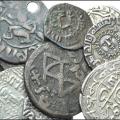285. Dominik Perler on Medieval Skepticism
The medievals were too firm in their beliefs to entertain skeptical worries, right? Don't be so sure, as Peter learns from Dominik Perler.
Themes:
• D. Perler (ed.), Ancient and Medieval Theories of Intentionality (Leiden: 2001).
• D. Perler, Theorien der Intentionalität im Mittelalter (Frankfurt: 2002, 2nd ed. 2003).
• D. Perler, Zweifel und Gewissheit: skeptische Debatten im Mittelalter (Frankfurt: 2006).
• D. Perler, “Skepticism,” in R. Pasnau (ed.), The Cambridge History of Medieval Philosophy, 2 vols (Cambridge: 2010), 384-96.
• D. Perler, “Does God Deceive Us?” in H. Lagerlund (ed.), Rethinking the History of Skepticism: the Missing Medieval Background (Leiden: 2010), 103-71.
• D. Perler, “Scepticism and Metaphysics”, in J. Marebon (ed.), The Oxford Handbook of Medieval Philosophy (Oxford 2012), 547-65.







Comments
Great interview! Very
Great interview! Very informative and easy to follow.
Terrific
That was terrific!
One of my favourite episodes. Took me back out of the Medieval weeds and seemed to be a primer for Early Modern/Renaissance philosophy. Still love your series thoroughly.
Really outstanding
Peter, I really enjoyed this discussion. My quiestion - has anyone compared the work of the medieval skeptics to F. Bacon's 4 Idols? After all, F. Bacon developed, IMO, an extremely sophisticated criticque of sense data in his model. F. Bacon, however, did not go into skepticism - he simply changed the model for determining truth in the physical world.
In reply to Really outstanding by Robert Jackson
Bacon
Gosh, I don't know the answer to that one - maybe someone else can help. Obviously I will be covering Bacon when I get to the Renaissance so maybe the answer will turn up when I get there.
Glad you liked the episode!
Excellent interview. Perler
Excellent interview. Perler is one of your best guests - very clear and easy to follow, especially on a technical subject like this.
By the way, since Aquinas said there were no gaps in the soul and Ockham said there were, it is clear enough to which philosopher this podcast owes its loyalty. ;)
Add new comment